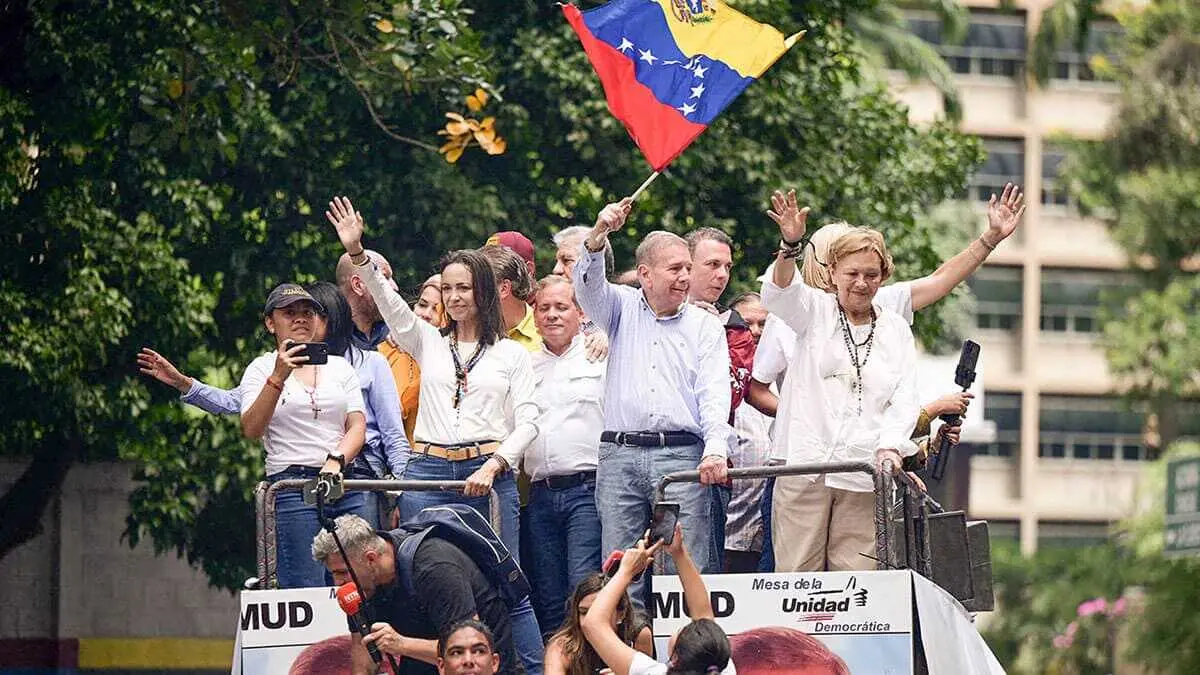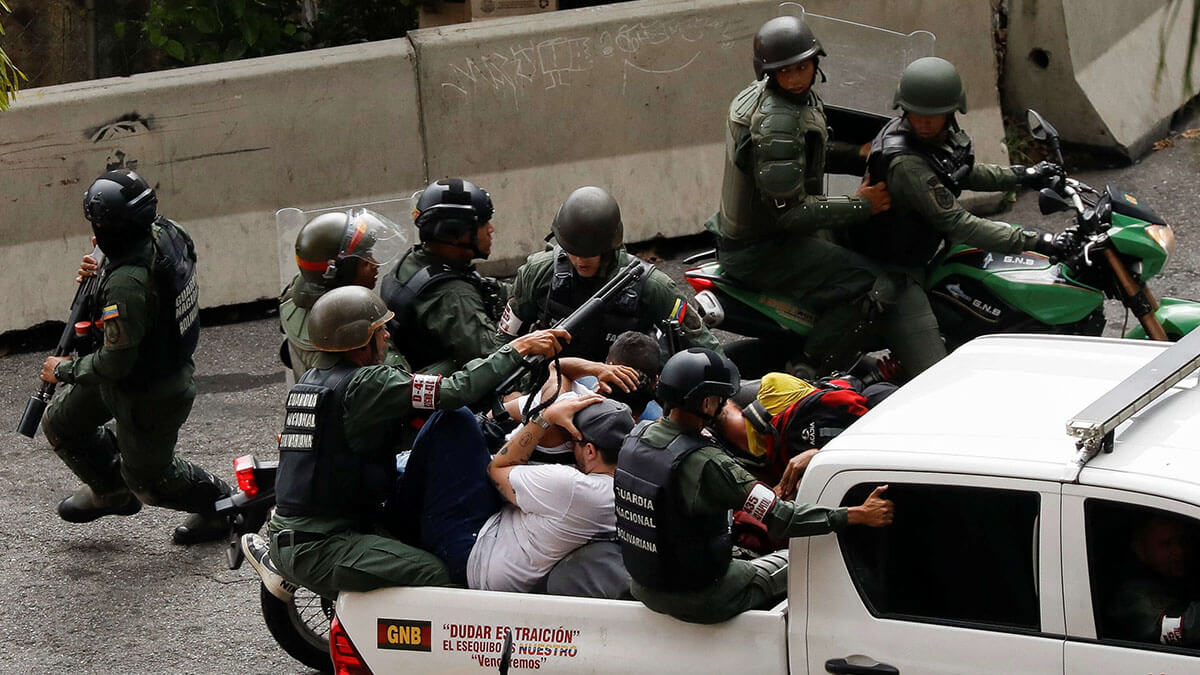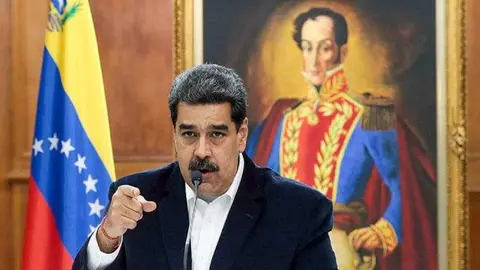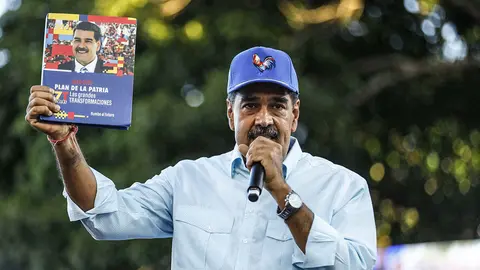Venezuela is on the verge of a historic outcome

William Cárdenas took to the microphones of Onda Madrid's ‘De cara al mundo’ programme, where he explained the keys to the inauguration of Venezuelan President Edmundo González Urrutia, and how Nicolás Maduro is trying to prevent it.
On an international level, Cárdenas analysed the importance of Donald Trump's inauguration on 20 January, and the relations between former members of the Spanish government, where Edmundo González was a refugee, and Nicolás Maduro.
William Cárdenas, a Venezuelan lawyer based in Madrid. Mr Cárdenas, will Edmundo González be able to take office next week, next Friday, as the new president of Venezuela?
Nicolás Maduro is calling on his supporters, many of whom are armed gangs, to take to the streets, to harass Venezuelans who may come out to oppose his inauguration. He is taking steps that are a bit, I think, desperate, and he has offered 100,000 dollars for information leading to the capture of Edmundo González.
He called a party on 31 December at the Miraflores Palace, which nobody went to. And this is simply a reflection of weakness. For her part, María Corina Machado has invited the people to take to the streets. Ninety per cent of Venezuelans no longer want to continue with this story, 25 years of poverty, tragedy, misery, with the 21st century socialism of Chávez and all his paraphernalia that has only impoverished the country.
Edmundo González is going to be in Argentina from the 4th. In other words, he has travelled to the American continent, or will be travelling to the American continent, and has promised that he will be at the inauguration.
The call to María Corina has the logical pretext that the people should go out to reclaim the legitimate triumph of the popular will of 28 July. And this could be the fuse that determines the difference in the military's position of accompanying or not accompanying the Venezuelan people in their demand for freedom.
There are hard days ahead, it will be a train wreck, as I have just said, and we must simply wait. In 10 days, Trump will take office, and he has already announced that he will take a very tough stance on Nicolás Maduro if he remains in power. In other words, we have little time left to know if Venezuela is going to recover its democracy and freedom.

Edmundo González has prepared his measures for the first 100 days of his government, measures that have been perfectly prepared, studied, analysed, with experts, with technicians, with very well-prepared people. The problem is that he can take office, because, Mr Cárdenas, can we fear for the integrity of Edmundo González if he arrives in Caracas?
If he arrives without having the guarantees provided by a sector of the Armed Forces so that his security is fully protected, it would be an exceedingly high. They have the people capable of getting Venezuela out of this complicated situation. I understand that those who will decide in the end will be the members of the Armed Forces, who, at a given moment, when they see the people in the streets and Maduro asks them to attack Venezuela, the people refuse, the military refuse to do so, and simply say: ‘Look, sir, your time is up’.
The one who won the elections, and the legitimate president is this gentleman, and in that case, I think he would have all the security guarantees. And I understand that María Corina is playing a very tough card. It is a challenge and at the same time a remarkably considerable risk, because she has achieved a lot of international prestige. This step will be decisive in the history of the country.
Mr Cárdenas, the Chavista regime could crumble, although there are many interests involved, because the generals of the Armed Forces have benefited from her position and remain loyal to the regime. Also behind it is the support that the Chavista dictatorship has, not only from Cuba or other far-left Latin American governments, but also from Russia, China, and Iran, so Venezuela could become an international problem.
Cuba is the baton that has been conducting this orchestra and with it, of course, all the international allies of what has once been called the ‘axis of evil.’ But the truth is that, in Venezuela, a Venezuelan president once defined this in an amazingly uncomplicated way, he said: ‘The military are loyal until they are no longer loyal.’
Many generals of this group that make up the Cartel of the Suns are very committed to crime, to drug trafficking, to all the economic illicit activities that have taken place in the country. But there is a sector of the Armed Forces that is already asphyxiated by these things, by the subjection to Cubanisation, control, espionage? They have been silenced for a long time, but the time is coming for this to ended.

But the pressure, for example, from the United States, you mentioned that Trump will take office in a few days' time. But also from Spain, the other day at that breakfast, the former president Felipe González asked the Spanish government to take steps to guarantee the integrity of Edmundo González. He even offered to accompany him on his return to Caracas. This international pressure must be the key to trying to get Venezuela to regain freedom and democracy.
You are right. What we Venezuelans regret is that the Spanish government has turned its back on the Venezuelan people. And not only to the Venezuelan people, but to a man like Felipe González, who spent part of his political life in Venezuela.
The other day we heard Felipe González say that his return to Spain after many years outside Spanish territory came about when Carlos Andrés Pérez brought him on a flight, and the person in charge of arranging for Felipe González to come on that flight was the president-elect of Venezuela now, Edmundo González Urrutia.
And now, after the especially important historical ties between the Venezuelan people and the Socialist Party (PSOE), we find a man called José Luis Rodríguez Zapatero, who has played the role of collaborator and accomplice in everything that has happened in Venezuela, and Pedro Sánchez is following the dictates of José Luis Rodríguez Zapatero.
The Spanish government that exists now is an alliance of groups that were working with Chávez in Venezuela, such as Podemos, the groups that included Juan Carlos Monedero, Íñigo Errejón and Pablo Iglesias and all the Podemos of today that is in the government, in that alliance with Pedro Sánchez. They continue in this ideological complicity with a regime that has been denounced in the International Criminal Court for committing profoundly serious crimes against humanity.











